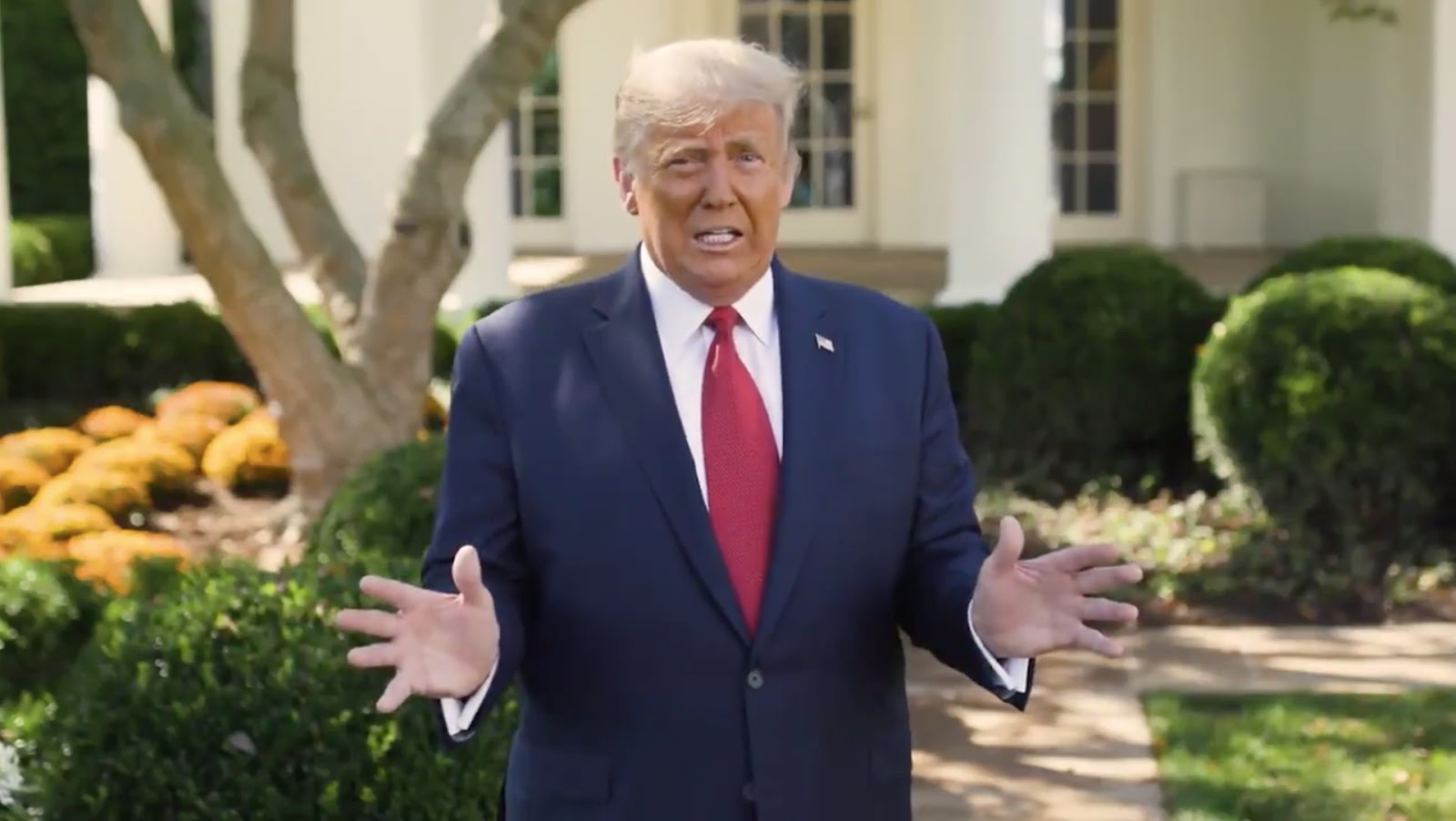Trump revives effort to shift blame for COVID-19 failures, calling the disease ‘Chinese Plague’
With less than four weeks until the election, Trump is again ramping up his efforts to blame China for his failure to contain the coronavirus. Polls indicate that voters will not buy this.

At the U.S. vice presidential debate last night, both Kamala Harris, the running mate of Democratic challenger Joe Biden, and incumbent Mike Pence refused to answer this question: “How would you describe our fundamental relationship with China? Are we competitors, adversaries, enemies?”
“China is to blame for the coronavirus,” Pence offered as his non-answer. “President Trump is not happy about it. He’s made that very clear.”
- Just hours earlier, a typically rambling Trump — this time under the influence of a euphoria-inducing steroid as part of his COVID-19 treatment — posted a video in which he renewed his attempts to blame China for his administration’s failures to effectively control the coronavirus pandemic. After nearly four minutes of raving about the drugs he had received and how good they made him feel, Trump pivoted to China:
It wasn’t your fault that this happened, it was China’s fault, and China is going to pay a big price [for] what they’ve done to this country. China’s going to pay a big price, what they’ve done to the world. This was China’s fault.
- Trump followed up with a tweet boasting about an executive order he signed in June — “the height of the Chinese Plague,” he specified — that suspended Green Cards for immigrants and many work visas through the end of the year.
Trump’s China policy has “resulted in the loss of American lives, American jobs, and America’s standing,” Harris said, also not exactly responding to the original question. Earlier in the debate, after Pence had boasted of the “tariffs that President Trump put into effect to fight for American jobs and American workers,” Harris responded, “You lost that trade war.”
- This is true about the trade war — it has been obviously counterproductive. See Ryan Hass and Abraham Denmark on The China Project: More pain than gain: How the U.S.-China trade war hurt America.
Could Trump’s blaming of China work?
China bashing in the lead-up to an American election is by no means unusual, but it is an odd choice for the Trump administration given the attitudes of voters right now.
- China is the 11th most important issue to voters, a Politico/Morning Consult poll last month showed. Issues of more importance included the economy, healthcare, the coronavirus, and even the environment.
- Most Americans — 56% — “say the U.S. government has substantial responsibility for the situation” with the coronavirus, compared with “47% who place that much blame on the governments of other countries and only 39% who say the same about the World Health Organization,” a poll found this month.
- Many Americans “favor a middle ground” on China, a survey of “voters in 12 states most likely to determine control of the White House and the Senate” found last month. Just one in five “call standing up to China a top security issue influencing their votes,” and 60% agree that the U.S. should “maintain a constructive relationship with China and resolve our differences diplomatically.”
How is China responding?
As with previous election cycles, Beijing appears to be largely ignoring the China-bashing rhetoric. Xinhua News Agency completely omitted all mention of China in both its English– and Chinese-language reports on the vice presidential debate, while CNN streams of the debate in Beijing went blank during questions about China. A lone Global Times report quoted two Chinese professors giving their analysis of the candidates’ China stances.
On issues that go beyond rhetoric, however, Beijing is pushing back strongly. As the Trump administration has strengthened official contacts with Taiwan, for instance, China has been conducting numerous military drills and posting propaganda videos, sending a message to Washington about its red lines.
Former secretary of state Henry Kissinger said yesterday, Bloomberg reports, that U.S. and Chinese leaders “have to discuss the limits beyond which they will not push threats.” But with few official exchanges and even backchannel diplomatic links having seized up during the pandemic, those conversations are unlikely to happen before next year.






